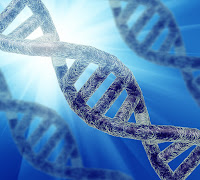High blood pressure usually comes without warning, and many people have elevated blood pressure without even knowing it. When symptoms such as blurred vision and loss of consciousness occur, they can cause damage to organs, such as heart, brain, kidney and so on. Therefore, Hypertension is also known as the "silent killer", so everyone, especially the eight groups I wrote about in my last article, must know their blood pressure. I'll tell you more about the symptoms of hypertension, especially the early symptoms of hypertension.
The typical high blood pressure symptoms
The typical symptoms of high blood pressure mainly include headache, dizziness, dizziness, head distension, etc., and severe cases can be manifested as asthma, dyspnea, edema, visual impairment, nausea, vomiting, hemiplegia, oliguria, chest pain and other complications. However, there are not many patients with typical symptoms, many hypertension are asymptomatic, even systolic blood pressure is above 200mmHg, clinical asymptomatic or mild symptoms are not uncommon.
1. Dizzy
Dizziness is the most common high blood pressure symptoms. Some are transient, occurring when squatting or standing up suddenly, and some are persistent. Dizziness is the main pain of the patient, the head has persistent dull discomfort, serious impede thinking, affect the work, lose interest in the surrounding things, when the occurrence of hypertensive crisis or vertebrobasilar artery blood supply is insufficient, can appear and inner ear vertigo similar symptoms.2. Headache
Headache is also a common high blood pressure symptoms, more for persistent dull pain or throbbing pain, and even a burst of sharp pain. Often occurs when waking up in the morning, get up activities and gradually reduce after meals. The pain is mostly in the temples on both sides of the forehead and the back of the head.3. Irritability, heart palpitations and insomnia
The disposition of patients with hypertension is more irritable, sensitive and excitable. Palpitations, insomnia is more common, insomnia is more difficult to fall asleep or early wake up, sleep is not real, nightmare, easy to wake up. This is concerned with cerebral cortex function disorder and plant nerve function disorder.4. Lack of concentration and memory
 Early more not obvious, but with the development of the disease and gradually aggravated. It often becomes one of the reasons for patients to seek medical treatment because of its distressing effect, which is manifested by easy distraction of attention, recent memory loss, and often difficult to remember recent events, while memories of the past, such as childhood events, are still vivid.
Early more not obvious, but with the development of the disease and gradually aggravated. It often becomes one of the reasons for patients to seek medical treatment because of its distressing effect, which is manifested by easy distraction of attention, recent memory loss, and often difficult to remember recent events, while memories of the past, such as childhood events, are still vivid.
5. Numbness
Common numbness of fingers, toes or skin, such as mosquito or back muscle tension, pain. Some patients often feel that the fingers are not flexible. Generally after appropriate treatment can be improved, but if the limb numbness is stubborn, lasts for a long time, and fixed in a limb, accompanied by limb weakness, cramps, jumping pain, should be timely to the hospital to see a doctor, prevent stroke.
6. Flow nosebleed
Relatively rare. Because high blood pressure can cause arteriosclerosis, make blood vessel elasticity decrease, brittleness increase, it is easy to rupture bleeding. Among them, nosebleed is more common, followed by conjunctival hemorrhage, fundus hemorrhage, cerebral hemorrhage, etc. According to statistics, in a large number of patients with nosebleed, about 80% suffer from hypertension.
Hypertension is a very common chronic disease in clinical practice, and when it comes to hypertension, it can easily lead to various adverse manifestations, and even pose a threat to health due to the continuous rise in blood pressure. The signs of hypertension should be treated as soon as possible, and blood pressure should be actively controlled in a reasonable way, otherwise it may affect normal life and even shorten one's life expectancy if it continues to soar.
If you need more information, you can also refer to the links below:
1 Centers for Disease Control and prevention
2 all photoes from pexels










